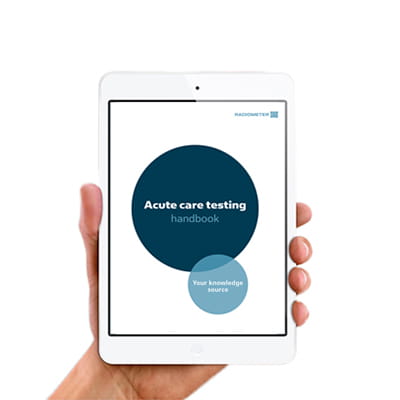Printed from acutecaretesting.org
September 2016
Hyponatremia in neurological disease highlighted by pediatric case study
Summarized from Cao L, Wager E, Meng Q. A young boy with recurrent headache, lethargy and hyponatremia. Clin Chim Acta 454: 46-48
In health serum sodium concentration is maintained within the approximate range of 135-145 mmol/L, so that hyponatremia (reduced plasma sodium concentration) is defined as serum sodium <135 mmol/L.
Hyponatremia is a frequent complicating feature of common chronic conditions such as heart failure, chronic kidney disease and cirrhosis, as well as many acute conditions, including acute kidney injury, diabetic ketoacidosis and severe vomiting/diarrhea. It is the most common electrolyte disorder, being present in a reported 15-20 % of hospitalized patients.
Mild hyponatremia (serum sodium 130-135 mmol/L) is usually asymptomatic but severe acute-onset hyponatremia (serum sodium <125 mmol/L) causes brain cells to swell due to influx of water (cerebral edema) with consequent neurological symptoms such as headache, agitation, confusion with impaired mental function. In the most severe cases, hyponatremia can cause seizures, coma and ultimately death.
Hyponatremia thus has symptomatic effect on brain function. But as a recently published case study exemplifies, disease of the brain can cause hyponatremia. Indeed, as the authors of this case study observe, hyponatremia is a common electrolyte disorder in patients with central neurological disorders.
The subject of this case study is an 8-year-old boy who at the age of 6 years presented with recurrent headache, double vision and recent history of vomiting. MRI scan of his brain at this time revealed an abnormal mass in the pineal region, which following surgical resection, was found to be a malignant germ cell tumor. The boy was treated with five cycles of chemotherapy followed by radiotherapy.
During the following period until his most recent hospital admission at age 8 years, the malignant disease sadly recurred with evidence of tumor spread to a site on the spinal cord close to the 4th thoracic vertebrae. This secondary metastasized tumor was also surgically removed.
Recurrent hyponatremia (serum sodium in the range of 116-133 mEq/L (mmol/L)) had been a feature throughout this boy’s illness, starting in the days following completion of radiotherapy after his first operation. Large daily doses of sodium chloride were required to maintain serum sodium in the reference range.
As the underlying disease progressed with metastatic spread, hyponatremia worsened and the boy’s general condition deteriorated. At his most recent hospital admission at 8 years, he had progressive paraplegia and reduced mental status (very lethargic and difficult to rouse); he was clinically dehydrated and his serum sodium at this time was just 117 mmol/L.
The mechanism of hyponatremia in neurological disease is almost always attributable to one of two syndromes: syndrome of inappropriate antidiuretic hormone secretion (SIADH) or cerebral salt-wasting syndrome (CWS).
Much of this case study report is devoted to discussion of the distinguishing features of these two syndromes, and how laboratory testing and clinical details during this most recent hospital admission were able to determine that CSW was responsible for hyponatremia in the case of this young boy.
May contain information that is not supported by performance and intended use claims of Radiometer's products. See also Legal info.
Acute care testing handbook
Get the acute care testing handbook
Your practical guide to critical parameters in acute care testing.
Download nowScientific webinars
Check out the list of webinars
Radiometer and acutecaretesting.org present free educational webinars on topics surrounding acute care testing presented by international experts.
Go to webinars







